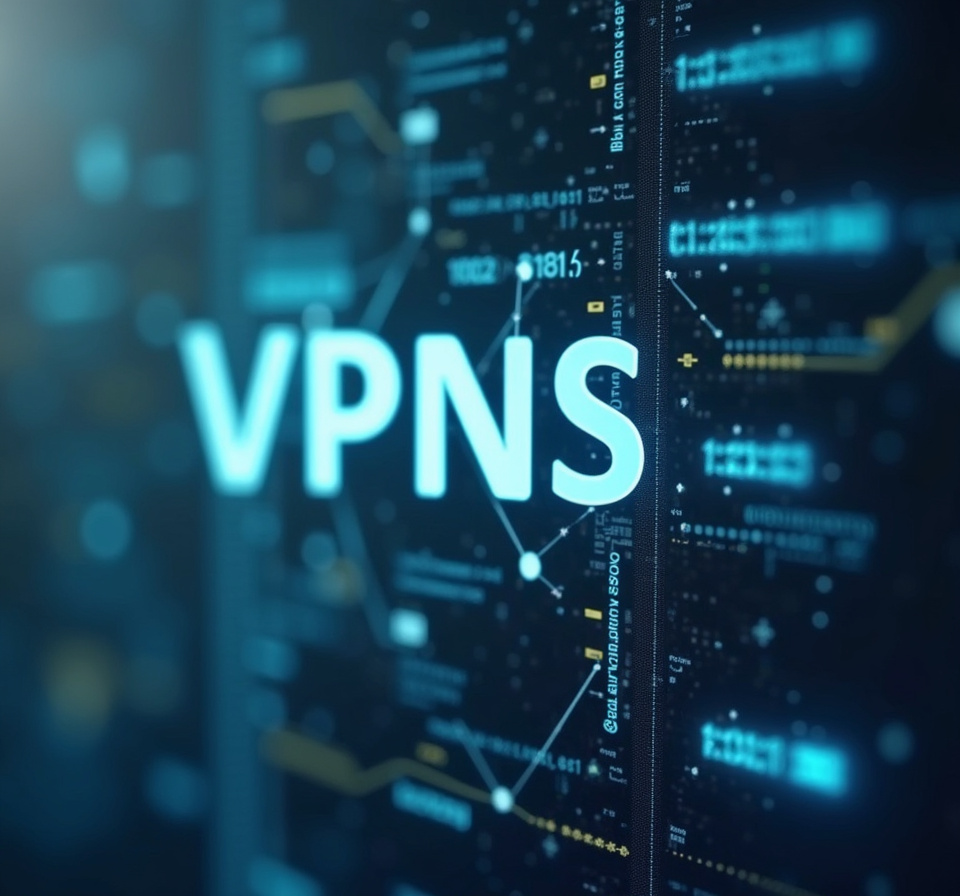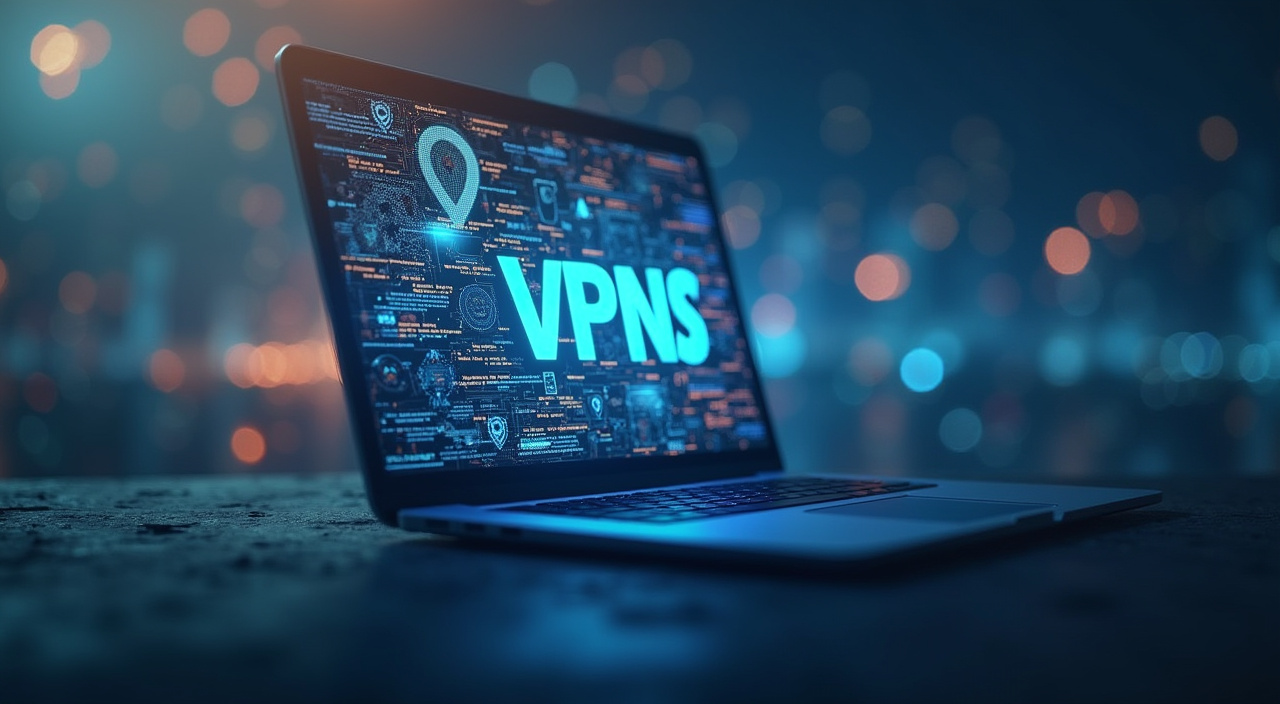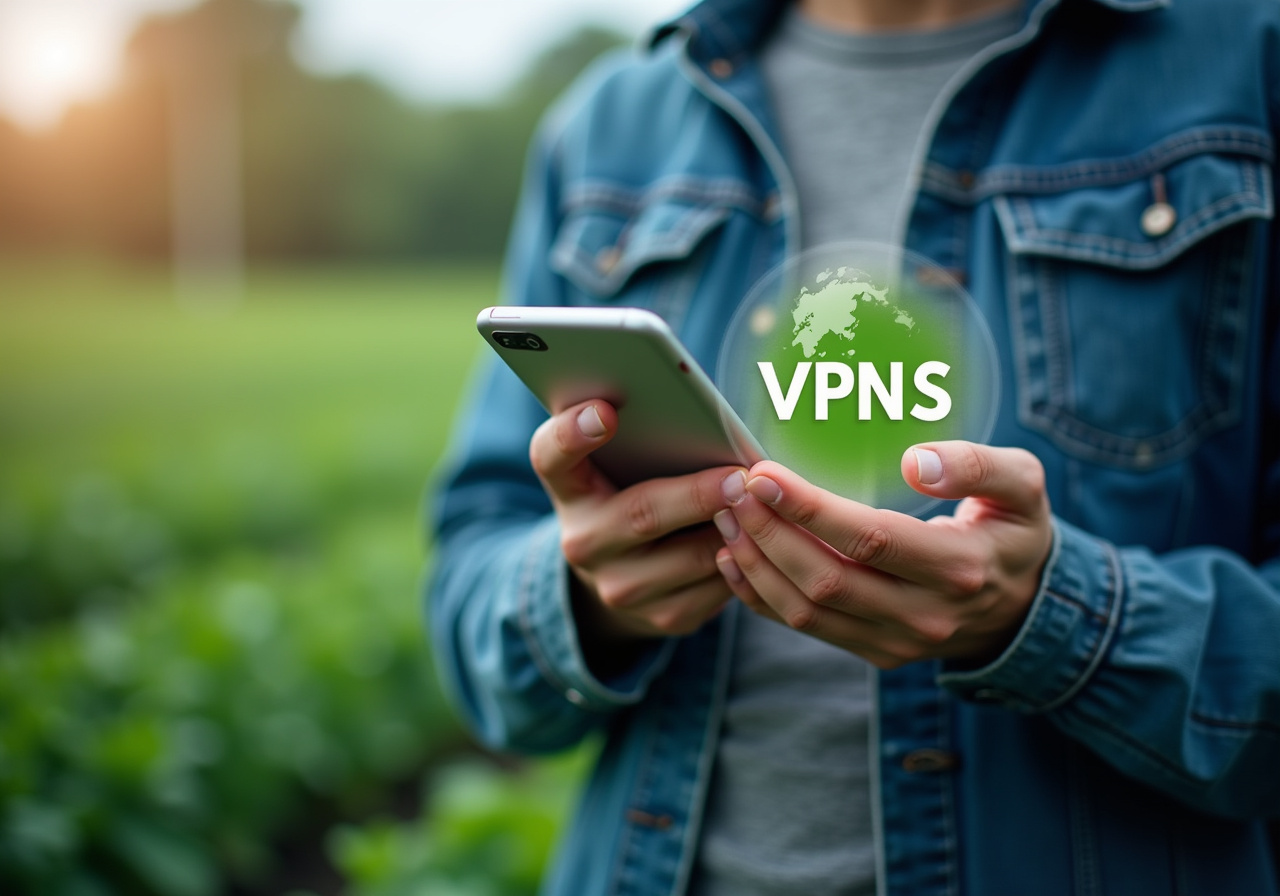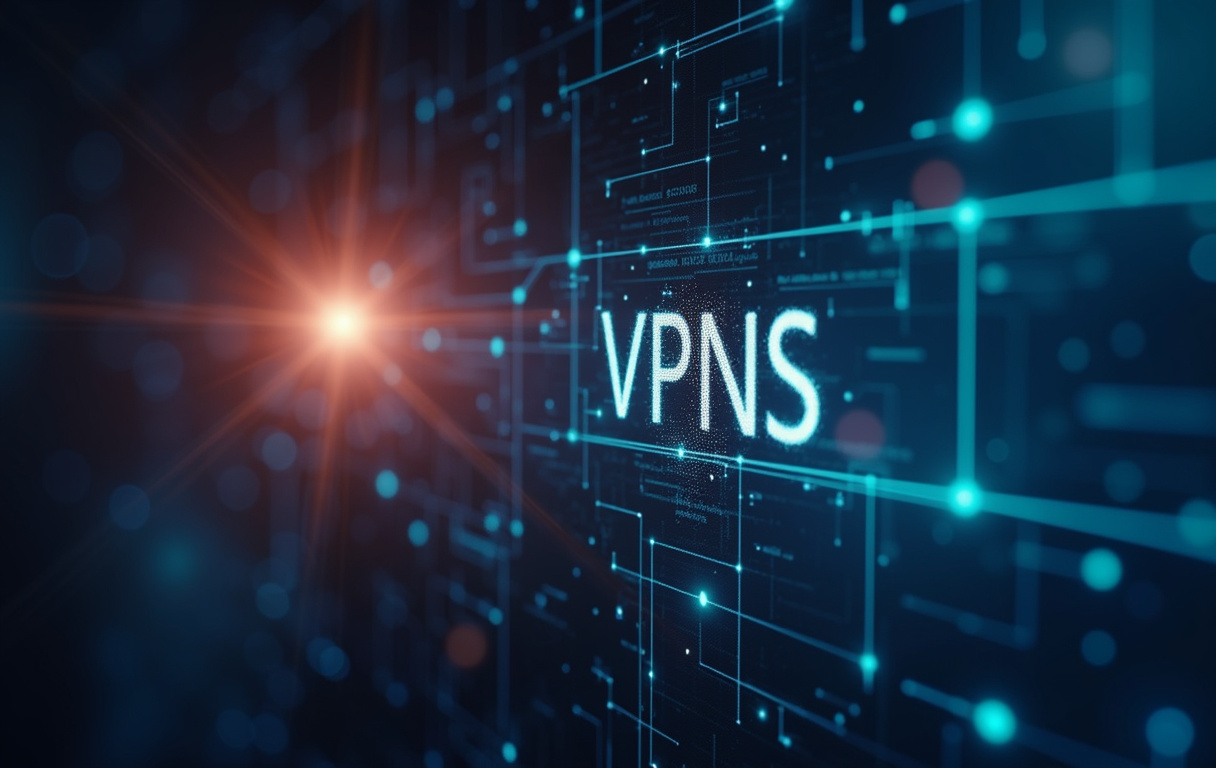VPNs for Renewable Energy Research: Protecting Innovations

Table of Contents
Introduction to VPNs in Renewable Energy
The renewable energy sector is experiencing unprecedented growth, fueled by global efforts to combat climate change and transition to sustainable energy sources. This rapid expansion is driving intense research and development activities, resulting in a wealth of innovative technologies and proprietary information. Protecting this intellectual property is crucial for maintaining a competitive edge, attracting investment, and ensuring the continued advancement of clean energy solutions.
However, the interconnected nature of modern research environments, coupled with the increasing sophistication of cyber threats, presents significant challenges to data security. A Virtual Private Network (VPN) serves as a vital tool in mitigating these risks, providing a secure and encrypted connection for data transmission, masking IP addresses, and enhancing overall privacy. This article delves into the critical role of VPNs in safeguarding renewable energy research, exploring how they contribute to "research security," "innovation protection," and the maintenance of "data integrity." For renewable energy research institutions, universities, and private companies, a dedicated "VPN for energy" isn't just an optional security measure; it's a fundamental necessity in today's threat landscape.
The stakes are incredibly high: a security breach could lead to the theft of groundbreaking research findings, disruption of critical research activities, compromised data integrity, and significant reputational damage. All of these things would undermine the hard work of the institutions carrying on the research and set them back significalty. The digital domain has become the new battleground for intellectual property, where sensitive research data is constantly under threat from malicious actors seeking to exploit vulnerabilities for financial gain or competitive advantage.
The renewable energy sector, with its high concentration of valuable intellectual property, is a particularly attractive target. Competitors may attempt to steal trade secrets, algorithms, or designs to accelerate their own development efforts or to stifle innovation. Nation-states may also be interested in acquiring renewable energy technologies for strategic or economic purposes.
The potential consequences of a successful cyber attack can be devastating, ranging from financial losses and legal liabilities to the erosion of public trust and the stifling of innovation. Therefore, implementing a robust and proactive security strategy is essential for protecting renewable energy research from these threats. Cloud storage and collaborative platforms, while offering increased accessibility and efficiency, also introduce new security risks, requiring careful consideration.
Data stored in the cloud may be susceptible to hacking, data breaches, or unauthorized access if adequate security measures are not in place. Collaboration platforms may be vulnerable to phishing attacks or malware infections, potentially compromising sensitive data shared between researchers. Therefore, it is crucial to implement strong security controls, such as encryption, access controls, and regular security audits, to mitigate these risks.
Furthermore, the distributed nature of renewable energy research, with researchers often working remotely or in different geographical locations, presents unique security challenges. Remote workers may be more vulnerable to cyber-attacks if they are not using secure networks or devices. Data transmitted over insecure networks may be intercepted by malicious actors.
Therefore, a comprehensive security strategy must address these challenges by providing secure and encrypted connections for all data transmissions, regardless of location. The implementation of a "renewable energy VPN" offers a viable way to address these vulnerabilities, create secure channels for commuications, ensure security for data transmissions, safe keeping of intellectual property rights and trade data, and proper execution of "innovation protection." All this in order to maintain "data integrity" and ensure accurate and reliable research outcomes.
The vulnerability of renewable energy research data is multifaceted, stemming from the confluence of high-value intellectual property, increasingly sophisticated cyber threats, and the inherent complexities of modern, distributed research environments. The highly competitive landscape within the renewable energy sector makes it a prime target for espionage and intellectual property theft. Organizations invest significant resources in research and development, striving to achieve technological breakthroughs that can provide a market advantage.
This intense competition creates a strong incentive for malicious actors to seek an unfair advantage by stealing research data, proprietary designs, or innovative algorithms. Competitors might leverage stolen data to accelerate their own development efforts, leapfrog the competition, or even undermine the progress of others by publishing sensitive information prematurely. The economic implications of such breaches can be substantial, potentially leading to lost revenue, decreased market share, and reputational damage.
Furthermore, nation-state actors may also be interested in acquiring renewable energy technologies for strategic or economic dominance. They might target research institutions or private companies to obtain valuable intellectual property that can be used to advance their own renewable energy capabilities or to gain a competitive edge in the global market. This type of espionage poses a significant threat to national security and economic stability.
The increasing reliance on cloud storage and collaboration platforms, while offering numerous benefits in terms of accessibility and collaboration, introduces additional security risks. These platforms often store vast amounts of sensitive research data, making them attractive targets for cybercriminals. Data breaches in cloud environments can expose confidential information to unauthorized access, potentially leading to the theft of trade secrets, the compromise of personal data, and the disruption of research activities.
Securing data in the cloud requires a multi-layered approach, including encryption, access controls, and regular security audits. Collaboration platforms, while facilitating seamless communication and data sharing among researchers, can also be vulnerable to phishing attacks, malware infections, and other cyber threats. Researchers may inadvertently click on malicious links, download infected files, or share sensitive information with unauthorized individuals, potentially compromising the security of the entire research environment.
Therefore, it's vital to educate researchers about the importance of practicing safe online behavior and implementing robust security measures to protect against these threats. Another significant vulnerability arises from the distributed nature of renewable energy research, which often involves researchers working remotely or in different geographical locations. Remote workers may be more susceptible to cyber attacks if they are not using secure networks or devices.
Data transmitted over insecure networks can be intercepted by malicious actors, potentially exposing sensitive information to unauthorized access. The use of personal devices for work-related activities can also introduce security risks, as these devices may not be adequately protected against malware or other cyber threats. Therefore, a comprehensive security strategy must address these challenges by providing secure and encrypted connections for all data transmissions, regardless of location.
This can be achieved through the implementation of a well-configured and carefully monitored "VPN for energy." Effective "research security" demands a proactive and holistic approach that incorporates regular risk assessments, security awareness training for researchers, and the implementation of robust security policies and procedures. Risk assessments should be conducted regularly to identify potential vulnerabilities and assess the potential impact of cyber threats. Security awareness training should educate researchers about the importance of using strong passwords, avoiding phishing scams, reporting suspicious activity, and adhering to security policies.
Robust security policies and procedures should define the roles and responsibilities of researchers and administrators in maintaining data security. It is also essential to implement strict access controls to restrict access to sensitive data to authorized personnel only. This can be accomplished through the use of strong authentication mechanisms, such as multi-factor authentication, and by implementing a least privilege model, where users are only granted the minimum level of access required to perform their job duties.
Regularly reviewing and updating access controls is crucial to ensure that they remain effective. The "renewable energy VPN" should be seamlessly integrated with other security measures, such as firewalls, intrusion detection systems, and endpoint protection software, to create a layered defense against cyber threats. Firewalls can block unauthorized access to the network, while intrusion detection systems can detect and alert administrators to suspicious activity.
Endpoint protection software can prevent malware from infecting systems and stealing data. This integrated approach provides a more robust and comprehensive security posture, reducing the risk of a successful cyber attack.
The cornerstone of a VPN's protective capabilities in the realm of renewable energy research resides in its ability to establish a robust and encrypted conduit for data transmission. This encryption process transforms data into an unreadable format, rendering it incomprehensible to anyone intercepting it without the appropriate decryption key. In essence, it's like sending sensitive documents through a secure tunnel, shielded from prying eyes.
The strength of this protection is directly proportional to the encryption algorithm used. There are several encryption protocols employed in VPNs, each possessing its own unique attributes, strengths, and weaknesses. Understanding these differences is crucial for selecting the most appropriate protocol for a specific research environment.
Some of the most prevalent protocols include OpenVPN, IPsec (Internet Protocol Security), and WireGuard. OpenVPN stands out as a highly versatile and secure protocol, widely adopted in both commercial and open-source VPN solutions. It's known for its robust security features, flexibility in configuration, and compatibility with a wide range of operating systems and devices.
OpenVPN supports various encryption algorithms, including AES (Advanced Encryption Standard), which is considered to be one of the strongest encryption algorithms available. IPsec is another well-established and robust protocol, often favored in enterprise environments due to its strong security and interoperability features. It operates at the network layer, providing security for all traffic passing through the VPN tunnel.
IPsec can be configured to use various encryption algorithms, including AES and 3DES (Triple DES). While IPsec is generally considered to be secure, its configuration can be complex, requiring specialized expertise. Newer protocols, such as WireGuard, are rapidly gaining traction due to their speed, efficiency, and modern design.
WireGuard is designed to be simpler and more lightweight than OpenVPN and IPsec, making it potentially faster and easier to configure. It utilizes state-of-the-art cryptography and is designed with security in mind. The choice of encryption protocol should be informed by a meticulous assessment of the security needs and performance requirements of the renewable energy research environment.
Factors to consider include the sensitivity of the data being transmitted, the level of security required, the performance impact of encryption, and the compatibility with existing infrastructure. Beyond encryption, a well-configured "renewable energy VPN" also masks the user's IP address, offering an additional layer of privacy and anonymity. When a user connects to a VPN server, their actual IP address is concealed and replaced with the IP address of the VPN server.
This effectively makes it exceedingly difficult for malicious actors to trace the user's online activity or pinpoint their physical location. This capability is particularly valuable for researchers engaged in sensitive projects, those working remotely, or those who might be at heightened risk of being targeted by cyber attacks. Moreover, a VPN can circumvent geographical restrictions and censorship, empowering researchers to access information and collaborate seamlessly with colleagues across the globe, unhindered by political or regulatory barriers.
This aspect is especially crucial in today's interconnected world, where collaboration and knowledge sharing are essential for accelerating the pace of innovation in the renewable energy sector. Researchers may need to access research papers, data sets, or online resources that are restricted in their own country or region. A VPN can enable them to bypass these restrictions and access the information they need to conduct their research.
Furthermore, a VPN can facilitate secure communication and collaboration between researchers located in different countries, even those with restrictive internet policies. By encrypting their communications, a VPN can protect sensitive information from being intercepted by government surveillance or other unauthorized parties. In essence, the VPN serves as a digital passport, allowing researchers to navigate the global information landscape freely and securely.
The benefits of implementing a "VPN for energy" extend beyond simply protecting against external threats; it also plays a vital role in maintaining "data integrity." By encrypting data in transit, a VPN helps to prevent malicious actors from intercepting and manipulating sensitive information, ensuring that the data remains unaltered and reliable. This is especially critical for research publications, patent applications, and collaborative projects where data accuracy and authenticity are paramount. A compromised data set can lead to flawed research findings, invalid patent claims, and ultimately, a loss of credibility.
Therefore, safeguarding "data integrity" is an es
VPNs for Subscription Services: Enhancing Online Security
Selecting the right VPN solution for a renewable energy research environment demands a meticulous evaluation of several critical factors. It's not simply about choosing the most popular or cheapest option; it's about finding a solution that aligns perfectly with the specific security needs, technical capabilities, and budgetary constraints of the organization. Key considerations include the level of encryption offered, the number of concurrent connections supported, the geographical distribution of VPN servers, the logging policy of the provider, the speed and reliability of the connection, and the ease of use and management.
The level of encryption is paramount. As previously discussed, strong encryption is the foundation of VPN security. Look for VPNs that utilize robust encryption algorithms, such as AES-256, and support secure protocols like OpenVPN, IPsec, or WireGuard.
Avoid VPNs that use outdated or weak encryption algorithms, as these may be vulnerable to attacks. The number of concurrent connections supported is another important factor, particularly for research institutions with a large number of researchers who need to access the VPN simultaneously. Ensure that the VPN solution can accommodate the organization's needs without performance degradation.
The geographical distribution of VPN servers can also be critical, especially for researchers who need to access geographically restricted content or collaborate with colleagues in different countries. Look for VPNs that have servers located in a wide range of countries, ensuring that researchers can connect to a server in the desired location. The logging policy of the VPN provider is a crucial consideration for privacy.
Some VPN providers log user activity, including browsing history, IP addresses, and connection times. This information could potentially be used to identify users and track their online activity. Look for VPN providers that have a strict no-logs policy, meaning that they do not collect or store any user data.
The speed and reliability of the VPN connection are essential for ensuring that researchers can work efficiently. A slow or unreliable VPN connection can significantly impact productivity. Look for VPNs that offer fast and stable connections, with minimal latency and downtime.
Ease of use and management are also important factors, particularly for organizations with limited IT resources. Choose a VPN solution that is easy to set up, configure, and manage. The VPN should have a user-friendly interface and provide clear documentation and support.
Beyond these technical considerations, it's also essential to evaluate the reputation and trustworthiness of the VPN provider. Look for providers with a proven track record of security and privacy. Read reviews and check for any reports of security breaches or data leaks.
It's also advisable to choose a VPN provider that is based in a country with strong privacy laws. Once a VPN solution has been selected and implemented, regular audits and penetration testing are crucial to ensure that it remains effective against evolving cyber threats. Vulnerability assessments should be conducted regularly to identify any weaknesses in the VPN infrastructure.
Penetration testing involves simulating cyber attacks to test the security of the VPN and identify any potential vulnerabilities that could be exploited by malicious actors. The results of these audits and penetration tests should be used to improve the security of the VPN and address any identified weaknesses. Ongoing monitoring and maintenance are also essential for ensuring the continued security and reliability of the VPN.
This includes regularly updating the VPN software, monitoring for suspicious activity, and responding promptly to any security incidents. Staying abreast of the latest security threats and vulnerabilities is also crucial for maintaining a strong security posture. The renewable energy research landscape is constantly evolving, and new cyber threats are emerging all the time.
Therefore, it's essential to stay informed about the latest security trends and vulnerabilities and to adapt security measures accordingly. This may involve attending security conferences, reading industry publications, and subscribing to security alerts. Furthermore, collaboration and information sharing are essential for strengthening the security of the renewable energy research community as a whole.
Sharing information about security threats, vulnerabilities, and best practices can help to improve the security posture of all organizations in the sector. This can involve participating in industry forums, sharing threat intelligence data, and collaborating on security initiatives. By working together, the renewable energy research community can create a more secure and resilient environment for innovation.
“Innovation protection” requires constant vigilance and adaptation to new and developing cyber threats.
The Future of VPNs in Subscription Services
In conclusion, VPNs are no longer a luxury but a fundamental necessity for safeguarding renewable energy research in today's interconnected and threat-laden digital environment. The sensitive nature of the data generated within this sector, encompassing groundbreaking research findings, proprietary designs, and complex algorithms, makes it a prime target for malicious actors seeking financial gain, competitive advantage, or even strategic dominance. A robust "renewable energy VPN" implementation serves as a critical line of defense, ensuring "research security," bolstering "innovation protection," and maintaining the vital "data integrity" essential for reliable research outcomes.
The journey towards a secure research environment starts with recognizing the inherent vulnerabilities present in modern research ecosystems. The reliance on cloud-based storage and collaboration platforms, while boosting efficiency and accessibility, introduces potential points of compromise. Similarly, the increasingly distributed nature of research teams, with members working remotely and across geographical boundaries, expands the attack surface and necessitates robust security measures that extend beyond traditional network perimeters.
Addressing these vulnerabilities demands a proactive and multi-layered security strategy, where the VPN acts as a cornerstone of a comprehensive defense architecture. It's not simply about installing a VPN client; it's about integrating the VPN seamlessly into existing security protocols, alongside firewalls, intrusion detection systems, and endpoint protection solutions. This holistic approach provides a layered defense, mitigating the risk of a successful cyberattack and ensuring the confidentiality, integrity, and availability of critical research data.
Selecting the appropriate VPN solution requires careful consideration of technical specifications, vendor reputation, and alignment with the specific needs of the research institution. Factors such as encryption strength, connection speed, server distribution, and logging policies all play critical roles in determining the effectiveness of the VPN. Opting for a reputable provider with a strong track record of security and privacy is paramount, as entrusting sensitive data to an untrustworthy vendor can negate the benefits of VPN protection altogether.
Beyond the initial implementation, ongoing monitoring, maintenance, and adaptation are essential for sustaining a robust security posture. Regular audits and penetration testing should be conducted to identify vulnerabilities and confirm the effectiveness of existing security measures. Security policies should be regularly reviewed and updated to reflect evolving threats and best practices.
Furthermore, educating researchers about cybersecurity threats and best practices is a crucial component of a comprehensive security strategy. Researchers should be trained to recognize phishing attempts, practice safe browsing habits, and adhere to organizational security policies. A culture of security awareness can significantly reduce the risk of human error, which is often a contributing factor in successful cyberattacks.
The renewable energy sector plays a pivotal role in addressing climate change and transitioning to a sustainable future. Protecting the intellectual property generated within this sector is not just a matter of economic competitiveness; it's a matter of ensuring the continued progress towards a cleaner and more sustainable world. By embracing VPNs as a core security measure and prioritizing "research security," we can safeguard valuable innovations, foster collaboration, and accelerate the development of renewable energy technologies that will benefit generations to come.
In conclusion, a well-implemented and diligently maintained "VPN for energy" is an indispensable tool for any organization engaged in renewable energy research, ensuring "innovation protection" and contributing to a more secure and sustainable future. Embracing this technology is an investment in not just the present but also in the future of renewable energy and the planet.
Stay Updated
Get the latest VPN news, tips, and exclusive deals to your inbox.




